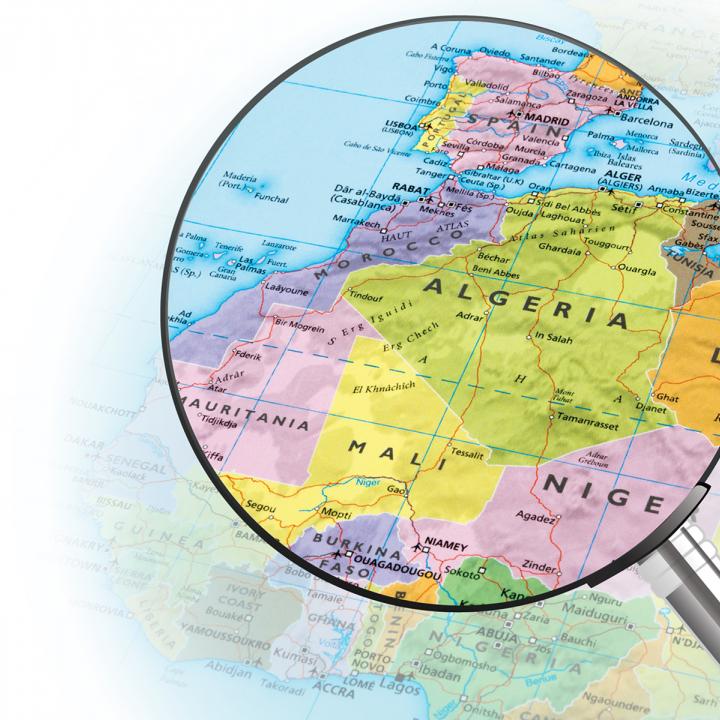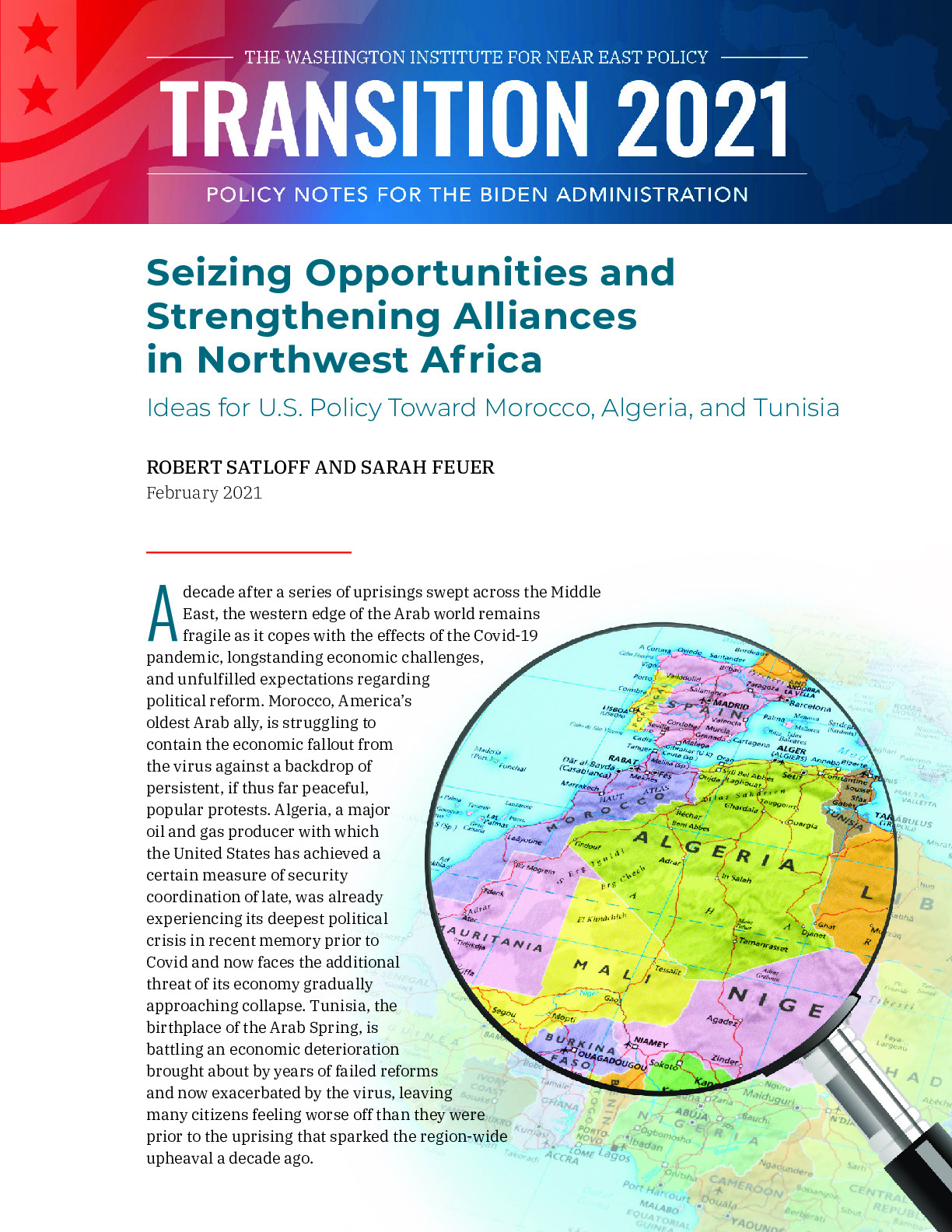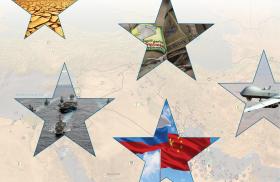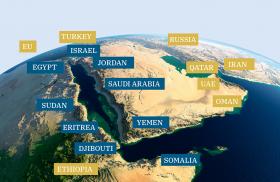
- Policy Analysis
- Policy Notes 94
Seizing Opportunities and Strengthening Alliances in Northwest Africa: Ideas for Policy Toward Morocco, Algeria, and Tunisia

Part of a series: Transition 2021
or see Part 1: The Coming Iran Nuclear Talks: Openings and Obstacles
Modest investments of U.S. diplomatic capital, economic aid, and security assistance can help these three countries and advance American interests.
In the third in a series of TRANSITION 2021 memos examining the Middle East and North Africa, Robert Satloff and Sarah Feuer look at the U.S. relationship with Morocco, Algeria, and Tunisia. All three countries are facing sharp challenges, from economic strains exacerbated by the pandemic to potential instability arising from the conflicts in Western Sahara and Libya. But this far corner of the region also offers strategic opportunities for the Biden administration to help these countries and, in turn, advance a range of key U.S. interests.
“In contrast to many other areas of the Middle East, northwest Africa offers a realm in which relatively modest investments of American diplomatic capital, economic aid, and security assistance can yield substantial returns, and the point of departure for the incoming administration’s bilateral engagement will, for the most part, be not one of tension but rather of opportunity,” write the authors.
In the coming weeks, TRANSITION 2021 memos by Washington Institute experts will address the broad array of issues facing the Biden-Harris administration in the Middle East. These range from thematic issues, such as the region’s strategic position in the context of Great Power competition and how to most effectively elevate human rights and democracy in Middle East policy, to more discrete topics, from Arab-Israel peace diplomacy to Red Sea security to challenges and opportunities in northwest Africa. Taken as a whole, this series of memos will present a comprehensive approach for advancing U.S. interests in security and peace in this vital but volatile region.





